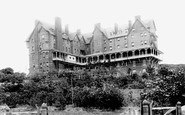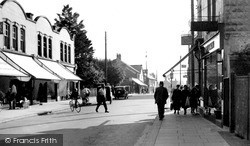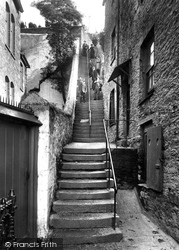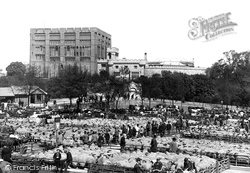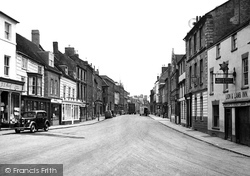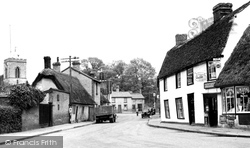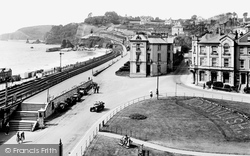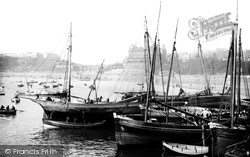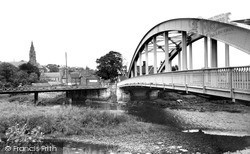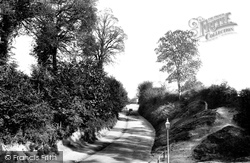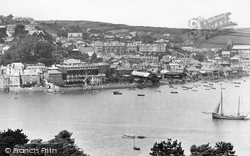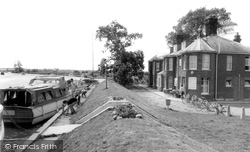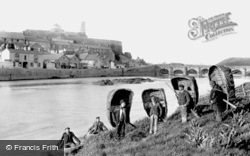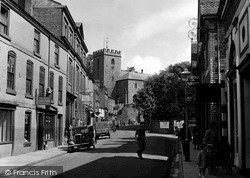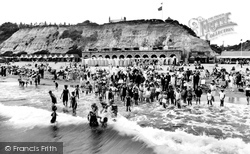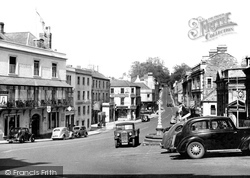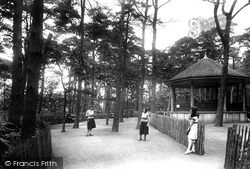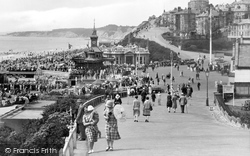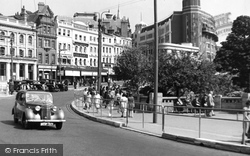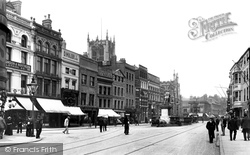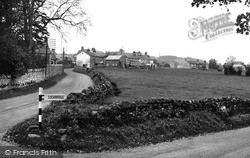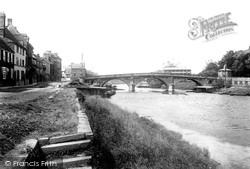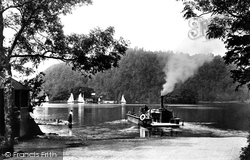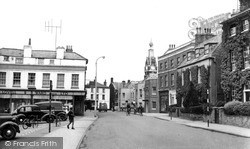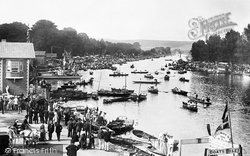Places
18 places found.
Those places high-lighted have photos. All locations may have maps, books and memories.
- Hythe, Kent
- Hythe, Hampshire
- Small Hythe, Kent
- Bablock Hythe, Oxfordshire
- Methwold Hythe, Norfolk
- Hythe, Somerset
- Hythe, Surrey
- Hythe End, Berkshire
- The Hythe, Essex
- Egham Hythe, Surrey
- West Hythe, Kent
- New Hythe, Kent
- Broad Street, Kent (near Hythe)
- Horn Street, Kent (near Hythe)
- Newbarn, Kent (near Hythe)
- Newington, Kent (near Hythe)
- Broad Street, Kent (near Hythe)
- Stone Hill, Kent (near Hythe)
Photos
360 photos found. Showing results 1,521 to 360.
Maps
101 maps found.
Books
10 books found. Showing results 1,825 to 10.
Memories
4,406 memories found. Showing results 761 to 770.
Jane Powell Ltd
My mother owned a dress shop in twickenham...and as I grew up I remember the swimming pool...which we broke into at night...about 1970...remember Pete Townsend wanting to rent our garage....and The Crown ballet school which was ...Read more
A memory of Twickenham by
School Days And Beyond
Having just stumbled on this website I felt compelled to add my recollections of living in Fenham in Cheeseburn Gardens from circa 1961 to 1980. I lived 2 streets down the hill from the first contributor who lived in Ovington ...Read more
A memory of Fenham by
I Was There Ron Jackson
In 1949 the Royal Links which had hosted Royals and the glitterati of the day was the first to fall to the contagious bout of fires which mysteriously began to sweep the area. Imagine that wonderful central staircase (with no ...Read more
A memory of Cromer by
Somerset Rd
hi every one , we lived at 26 somerset rd in the 60s when the house was brand new up untill 1975 when we moved over seas i went to stansfiled rd school and i have very fond memories , i have now moved back as i love failsworth it will ...Read more
A memory of Failsworth by
Old Photos Or Sketches Of Coach House Previously Included In The Property Of Arawai House
My husband and I have recently purchased an Old Coach House that used to belong to Arawai House. We believe the House and this Stable were built around 1870 ...Read more
A memory of Hill Brow by
The Broadway, Selsdon 1955
In 1955 I was doing my penultimate year at school. I started at Selsdon primary circa 1944. The air raid siren was out side the school so when it went off we could not miss it! The doodle bug phase of WWII started in June 44 ...Read more
A memory of Selsdon by
Growing Up With The Troubles
I was lucky in that I lived in an area that was not often touched by the violence that was going on in Northern Ireland at the time, but a telephone conversation with my mum in recent days brought back memories of life ...Read more
A memory of Belfast in 1970 by
Greasborough Dam
I was born on Church St, Greasbrough, gran and granddad lived close by in a row of cottages alongside the top club now a car park? My father worked in the local pits and we moved several times. At age 10 we moved back to ...Read more
A memory of Greasbrough in 1963 by
Born In Oldcroft
I was born in Upper Oldcroft, we had neighbours of Mr and Mrs Cooper, where we used to get water from their well. Horace and Rene Turley, Jim Cox and Family by the huge walnut tree. Cissie Thomas where we used our ration books. ...Read more
A memory of Oldcroft in 1946 by
Captions
4,899 captions found. Showing results 1,825 to 1,848.
It was demolished in the late 1960s, and the site is now occupied by the Ladygate Shopping Centre.
It was built in the 1830s by the builder and tallow-chandler Jacob Hamblen to create a direct, if somewhat exhausting, route between his shop and house.
In 1993 this was replaced by the very successful design of the Castle Mall shopping centre, partly built underground below a raised park.
Stand by the Burton monument and look down the High Street to compare this photograph with the scene today. The Lion and Lamb on the right has changed its name, and is now called Fridays.
Down by the crossroads is the Six Bells public house, while to the left, the church is one of only two in England dedicated to Saint Vigor.
Dawlish began as two discrete hamlets, one inland by the parish church and another on the seashore, but quickly grew as the first visitors arrived to holiday in the late 18th century.
Fishing, once the livelihood of many, had declined by the early 20th century, so small boats are now mainly used to take visitors trips around the bay.
The new road bridge was built by the renowned engineering firm of Dorman Long of Middlesbrough, who also built the Sydney Harbour bridge.
The lane to the right leads to Gosmore, and at the top of the hill in front of us, hidden by the bushes, is the Moorhens public house. The footpath follows the original level of the road.
Salcombe was preserved from wholesale development because it was never reached by the railway. Kingsbridge, five miles to the north, was the closest the line ever penetrated.
The hotel is on ground well below the level of the water in the river Yare, and is protected from flooding by the riverbank.
These boats were used by the ancient Britons, and are still made in the traditional way: canvas is stretched on a framework of interwoven rods and rendered waterproof with pitch or tar.
Advertising has always existed, though today it is controlled by the local authority.
By the 1920s, bathing costumes had become more practical than those shown in the previous illustrations, and the bathing machines had become redundant in favour of smaller kiosks and tents.
The road below was frequently flooded by the River Frome.
It is bordered by the sea on one side and a meandering river on the other.
By the twenties motor cars had almost completely replaced earlier horse- drawn transport, and charabanc tours had become a popular feature of a seaside holiday.
By the 1950s motor traffic was beginning to dominate the centre of Bournemouth, though it was still possible for drivers to easily pull in at the side of the road.
The statue of William III, originally erected in 1734, stands proudly in the centre, bisected by the tramlines. William has moved several times over the years; he now sits above a Gents urinal.
Both had been employed by the local magnates, the Lowther family, to manage their lands. This corner of Cumbria abounds in associations with the poet.
An earlier bridge at Bewdley, described by the topographer Leland as a 'goodly fair bridge over Severn of great arches of stone', probably led to the development of the town.
In this photograph, carts are being transported across the lake by the chain-operated pulley ferry.
The boy on the left appears to have been diverted from what he was doing: probably he has been hailed by the two cyclists opposite Lloyd's Bank, who seem to be about to head across the road towards him
By the turn of the century, the event had become one of the major attractions of the English Season.
Places (18)
Photos (360)
Memories (4406)
Books (10)
Maps (101)

